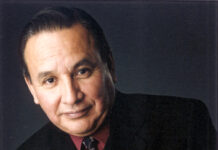THE BC Civil Liberties Association, Union of BC Indian Chiefs, and Black Lives Matter-Vancouver on Tuesday said that they are highly concerned about the key findings of a Vancouver Police Board Street Check Review. The groups are also opposed to the resulting recommendations going to the Vancouver Police Board meeting this week.
Street checks are the practice of stopping a person outside of an investigation, questioning them and obtaining their identifying information, and often recording their personal information.
In June 2018, the BC Civil Liberties Association and the Union of BC Indian Chiefs filed a complaint with the Office of the Police Complaint Commissioner, calling for an immediate investigation of the significant racial disparity revealed in the VPD’s practice of street checks. In response, the Vancouver Police Board commissioned a review of street checks in Vancouver, which has now been released to the public.
The organizations are concerned about four key components of the Street Check Review and the Summary Report to the Vancouver Police Board. First, the review and report assumes street checks are useful and necessary, despite no clear evidence to support this claim and no legally-tenable justification for street checks.
Second, the Street Check Review links street checks to suspicions of crime. This is a misinterpretation of the new provincial policing standards, which clearly states street checks must be voluntary interactions.
Third, the report to the Vancouver Police Board claims “random and arbitrary stops are not, and have never been part of the VPD’s policy or practice.” Yet the Street Check Review itself provides many examples of police arbitrarily stopping and collecting personal information about people without legal authority to do so, including from people standing on street corners.
Fourth, the organizations disagree with the review’s finding that the statistical evidence of disproportionate over-policing is “plausible.”
Indigenous and Black people are significantly over-represented in the numbers of street checks conducted by the VPD. In 2017, Indigenous people accounted for over 16% of street checks despite making up 2% of the population, and Black people accounted for 5% of street checks despite making up 1% of the population. In 2016, Indigenous women, who comprise 2% of Vancouver’s women population, accounted for 21% of women who were street checked. Data also reveals that 40% of VPD street checks are triggered by bylaw infractions. This undermines the claim that VPD are engaged in proactive policing and, instead, suggests that race-based over-policing and pretext-policing are occurring.
Latoya Farrell, Staff Counsel, BC Civil Liberties Association, said: “The VPD Street Check Review and the report to the Vancouver Police Board assume that street checks are valuable, despite the lack of any evidence to support the claim. The review also presumes it is beneficial for police to stop people who have ‘prior criminality,’ even though there is no legal footing for street checks and collection of personal information outside of having reasonable suspicion and probable cause that an offence is occurring or is about to occur. We are very concerned the Vancouver Police Board will entrench the practice of these street checks even though there is no legal basis to do so.”
Chief Don Tom, Vice President, Union of BC Indian Chiefs, said: “The majority opinion expressed in this review is that of police officers and not the daily experiences of Indigenous people. The UBCIC does not agree with the review’s finding that street checks have any value. We also find it outrageous that the reviewers maintain that the disproportionate street checks of Indigenous people and racialized minorities are ‘plausible’ and reasonable.’ We reject this finding as it justifies the over-policing, stigmatization, and lived reality of systemic racism our people face. Indigenous people continue to experience institutionalized discrimination in the justice system and a disproportionately high level of interaction with police, which is furthered by the practice of street checks. In an era of reconciliation, this is simply unacceptable.”
Meghan McDermott, Policy Director, BC Civil Liberties Association, added: “We completely disagree with the recommendations going to the VPD Board this week that our complaint should be concluded. The review confirms that the VPD has been arbitrarily stopping people, a practice that has severe impacts on people’s lives and sense of safety. The review, however, provides no evidence that these arbitrary street checks are useful or that they enhance public safety. Rather, the opposite; street checks allow for illegal detentions, racial discrimination, invasion of privacy, and collection of personal information. Street checks of people severely impacts their sense of safety and erodes their trust in the police. This harmful policing practice cannot be resolved with the new VPD street check policy and must be eradicated.”
Black Lives Matter – Vancouver noted: “Many people ask us ‘why is there a need for a Black Lives Matter chapter in Vancouver?’ because they are convinced that racialized issues like police violence, carding, racial profiling, #drivingwhileblack and so on, are issues unique to the United States and Eastern Canada. Numerous reported instances of anti-Blackness in Vancouver, such as the physical assault of Solomon Akintoye, the racial profiling and tasering of Jamiel Moore-Williams, Toronto-based anti-carding activist Desmond Cole being stopped by the VPD, and the violent handling of a young Black girl in Surrey by the RCMP, further proves the necessity of fighting against racism in this city and this country.”













